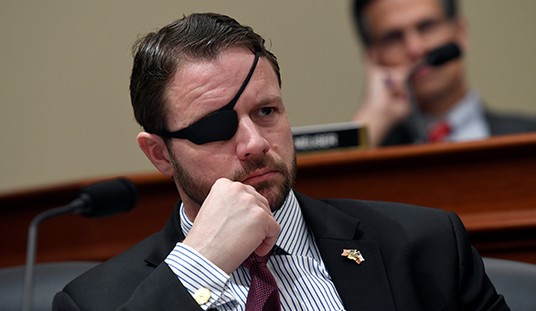WASHINGTON — Appearing at the White House today with King Abdullah of Jordan, President Obama said he’d briefed the Middle Eastern monarch on P5+1 negotiations with Iran and stressed that the administration continues “to hold out the possibility that we can eliminate the risk of Iran obtaining a nuclear weapon and give Iran an opportunity to rejoin the community of nations.”
“Whether Iran seizes that opportunity or not is something that we have not yet been able to determine, but we will keep on trying over the next several months, and we will continue to keep Jordan apprised,” Obama said.
And as Congress stepped up its calls this week to put additional pressure on Iran through sanctions, the White House — which has resisted those calls, claiming sanctions would scare Iran away from the negotiating table — danced around the question of whether it wants to sanction Israel.
Haaretz reported Thursday that the White House is examining steps beyond just condemning Israel for construction in the West Bank and East Jerusalem, including potential sanctions.
White House press secretary Josh Earnest told reporters today he’d “been informed of some of these reports.”
“And what I can tell you is that I’m not going to talk about any sort of internal deliberations inside the administration, and certainly not inside the White House,” he said.
Israel is “a close and strategic partner” of the U.S., Earnest added, but “we’ve also been crystal clear about our view of settlement activity.”
“We believe that settlements are illegitimate, and we have deep concerns about highly contentious planning and construction activities that the Israeli government is pursuing in East Jerusalem and the West Bank. We believe that those kinds of activities are counter-productive. We made those views clear in public. We made those views clear in private.”
And yet, the White House reacts angrily whenever Sens. Robert Menendez (D-N.J.) and Mark Kirk (R-Ill.) bring up their tough Iran sanctions legislation.
“We do believe that while productive talks continue, that it would be unwise to put in place additional sanctions on Iran, only because the success of that sanctions regime depends upon the ability and willingness of our partners around the globe to enforce that sanctions regime,” Earnest said.
“…So we’ve been clear about what our strategy is as it relates to Iran. I’m less willing to talk about — about any internal conversations about Israel.”
Kirk quickly responded to the report. “Not only is the administration rejecting new sanctions to end Iran’s nuclear threat, it’s now reportedly developing sanctions against our closest ally, Israel,” the senator said. “This move only worsens perceptions that the administration treats our friends like enemies and our enemies like friends.”
The administration was unwilling to discuss Iran this week before Congress, refusing to send a representative to a Senate Foreign Relations Committee hearing on Iran Wednesday unless Chairman Menendez held it behind closed doors.
The hearing was open, and the witness panel was composed of think-tankers.
“I am concerned that Iran has not demonstrated a sincere interest in reaching agreement and has used these talks to chip away at our positions, beginning with the concessions on enrichment in the Joint Plan of Action,” Menendez said.
“Yet, for over one year, we remain trapped in the same fruitless, cyclical narrative which has us conceding our positions — transforming the Arak reactor rather than dismantling it; converting Fordow for some alternate use, rather than closing it; and disconnecting centrifuges, rather than destroying them. And – perhaps more significantly – Iran isn’t budging on full access to questionable sites and the duration of the agreement.”
The New Jersey Democrat warned that “right now we are playing right into the Iranian narrative, so while they have maximized their demands at the negotiating table, we have minimized ours, with no consequences.”
“This is a worst case scenario, is extremely dangerous for global nonproliferation imperatives and for regional stability, and could leave Iran as a nuclear threshold state,” Menendez said, adding “we are seeing the repercussions of permitting Iran to retain an enrichment program resonate in the region” as other countries are asking “why they need to accept a no-enrichment standard when Iran will be allowed to enrich.”
“For me, the time has come to ask whether repeated negotiation extensions coupled with sanctions relief will ever result in a comprehensive deal. Iran benefits from successive rounds of unfreezing of assets abroad, and has not felt the need to make any real concessions beyond the requirements of the interim agreement,” Menendez continued.
“The assumption seems to be that another extension will result in a good deal – and all we need to do is continue negotiating – put more time on the nuclear breakout clock. My own perspective is more time won’t make a difference. Tehran’s desire for a nuclear program has not changed – and it won’t change. Iran is only negotiating because it wants economic relief and is betting that more time on the clock benefits its position.”
Ranking Member Bob Corker (R-Tenn.) said they received a classified briefing about Iran on Thursday, the day after the hearing.
In an interview with Bloomberg that day, Corker, who will take the gavel from Menendez in the 114th Congress, sounded a bit more cautious on sanctions.
“I have been in the minority and I’ve tried to work in every way I can in a bipartisan way with Chairman Menendez but also with the White House,” Corker said. “…I think there’s going to be a genuine search to figure out the best way that Congress can play a role.”
“I’m a co-sponsor on the Menendez bill that establishes new sanctions in the event a deal isn’t reached. It’s been difficult to understand how that’s problematic in the negotiations to say that we’re not imposing sanctions now but if for some reason we go down this route and the deal breaks apart, we’re going to add sanctions. It’s difficult to understand how that’s problematic.”
At Wednesday’s hearing, Corker said the fear of “rolling extensions” of the talks had come to fruition, noting that “the longer Iran waits, things continue to get better and better and better for them.”
The Republican Policy Committee, chaired by Sen. John Barrasso (R-Wyo.), called this week for tougher sanctions on Iran, saying Obama violated a promise in his State of the Union address that he would be “the first to call for more sanctions” if Iran failed to reach an agreement with the P5+1.
“This latest extension of sanctions relief for Iran violates the president’s promises to the American people. First, he said the sanctions relief provided to Iran would be ‘limited’ and ‘temporary.’ With the extension, that relief appears to have become limitless and permanent,” the RPC said.
“He should call on Congress to send him a bill imposing increased sanctions on Iran before departing for the year, and Congress should deliver it. Barring that, it should be an early order of business for the next Congress in January.”
The American Israel Public Affairs Committee said Monday that Obama “should toughen sanctions enforcement, and Congress should quickly take up new bipartisan sanctions legislation.”
“Despite significant concessions by the P5+1 – which would have allowed Iran to maintain most of its nuclear infrastructure – Tehran still refuses to take the steps needed to reach a good deal,” the AIPAC memo said. “Increased pressure offers the best chance to persuade Tehran to abandon its quest for a nuclear weapons capability.”
As Iranian President Hassan Rouhani said after the latest negotiation extension was announced: “The centrifuges are spinning and will never stop.”









Join the conversation as a VIP Member